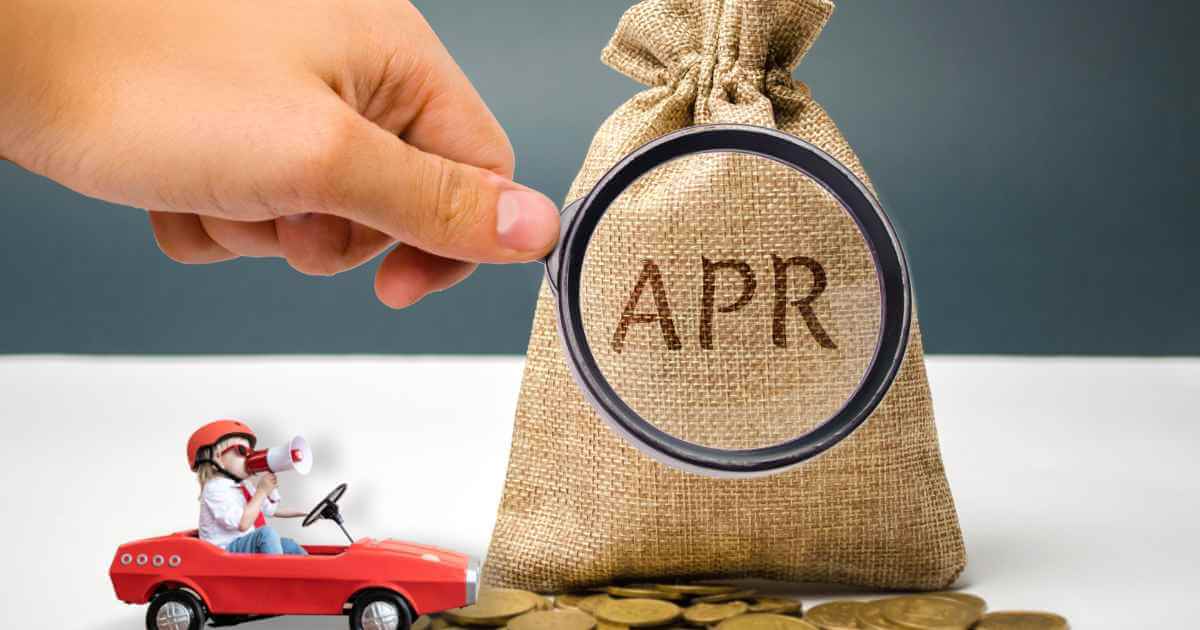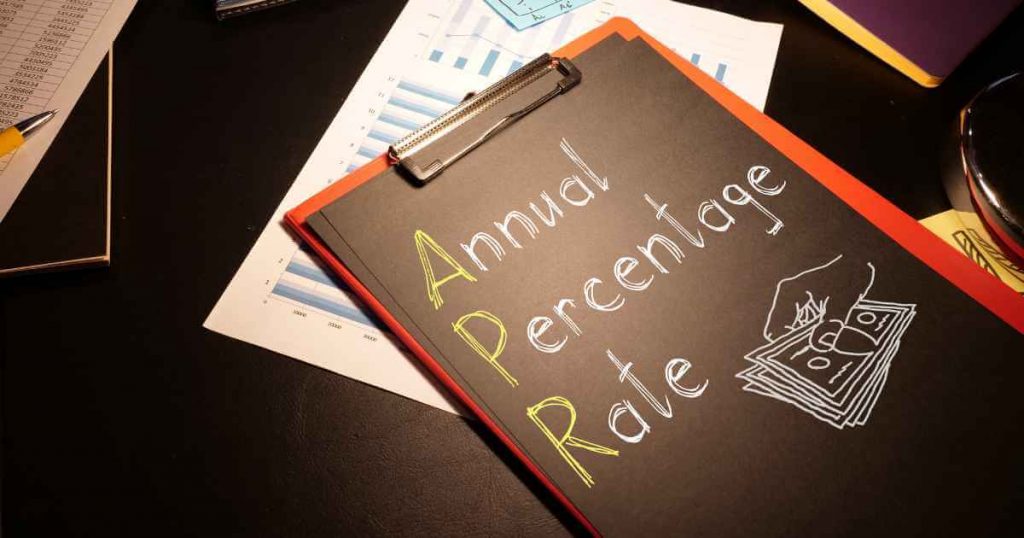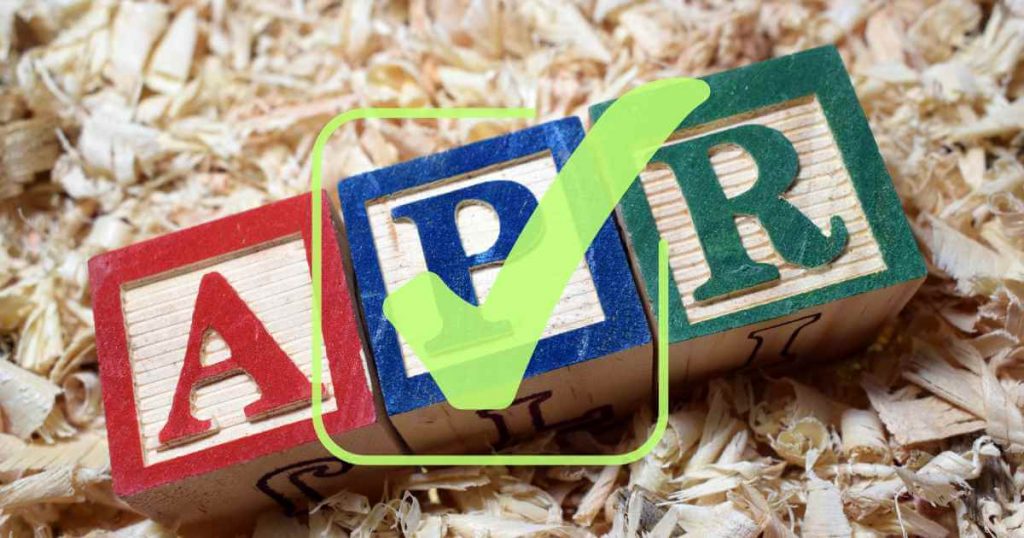Car Loan APR v. Interest: The Difference Will Save You Big!

Isn’t Car Loan APR & Interest The Same?
Contrary to popular belief, the car loan APR (annual percentage rate) and interest rate of an auto loan aren’t the same things. While they might seem similar, understanding the subtle differences between the two can significantly influence your overall cost when financing a vehicle.
This article will break down the elements of both car loan APR and interest rates to assist you in making an informed decision.
Car Loan APR
– Table of Contents –
- A Brief Intro to Car Loan APR
- Car Loan APR Explained
- Car Loan Interest Rate Explained
- Comparing Car Loan APR and Interest Rate
- Car Loan APR Is More Important Than Interest Rate
- Car Loan APR – FAQs
A Brief Intro to Car Loan APR

The Importance of Understanding Car APR and Interest Rate
When it comes to car financing, both the APRs and the auto loan interest rates play integral roles. They are the key elements that determine how much you will end up paying in addition to your original loan amount.
Although they might seem similar, there is a distinct difference between the two, and understanding this difference can save you a lot of money down the road.
APR and interest rate impact the total cost of a car loan differently. The interest rate refers to the cost of borrowing the principal loan amount, while the APR gives a more comprehensive view as it includes not only the interest rate but also any additional lender fees involved in the loan.
Think of it this way; All SUVs are vehicles, but not all vehicles are SUVs. The same applies here. All interest rates are included in car loan APRs, but not all car loan APRs are included in interest rates.
It’s crucial for car buyers to grasp this difference to make informed decisions and find the best possible loan terms.
The choice between focusing on APR or interest rate can affect your monthly payments, the total amount paid by the end of the loan term, and even your car ownership experience. With the right knowledge, car buyers can save significantly on interest charges and avoid costly mistakes during their car financing journey.
For a more detailed understanding of the impact of credit score on car loan APR and car loan approval, you can check out this guide here.
Next, let’s delve deeper into what exactly Car Loan APR is and how it’s calculated.
Car Loan APR Explained
What is Car Loan APR?
The car loan APR (Annual Percentage Rate) is a measure of the total cost of borrowing money annually. For auto loans, it represents the yearly cost of the loan, including interest and any associated fees. APR is usually expressed as a percentage, just as interest is as well.
This is why it can be so confusing for most.
Different Factors Influence the Auto Loan APR:
- Credit Score: Your credit score is one of the most significant factors. A higher credit score generally earns you a lower APR, as lenders perceive less risk in lending to you.
- Loan Term: The length of your loan can also impact the APR. Shorter-term loans often have lower APRs, as they represent a shorter timeframe for risk for the lender.
- Market Conditions: General market conditions and economic factors such as inflation can influence car loan APRs.
- Dealer Incentives: Sometimes, car dealerships offer promotional APRs as part of a sales promotion. These offers can result in lower-than-average APRs.
- Dealership Fees: If the dealership has additional fees that are included as part of the financing, it can increase your car loan APR.
- Lender Fees: Similar to the above, not all car lenders are made the same. A lender’s fees directly influence the APR of your auto loan.
How Auto Loan APR is Calculated
The APR for a car loan is calculated by combining the interest rate and any additional fees or charges associated with the loan, then expressing this total cost as an annual percentage of the loan amount.
For example, if you borrow $10,000 with an interest rate of 5% and $200 in fees, your APR calculation would be as follows:
- Calculate the yearly interest: $10,000 * 5% = $500
- Add any fees: $500 + $200 = $700
- Express this as a percentage of the loan amount: $700/$10,000 = 0.07 or 7%
The term of your loan and the principal amount significantly affect your total cost. A longer-term loan might have smaller monthly payments, but the total interest paid over the life of the loan could be higher. Don’t fall trap to the illusion that long-term car loans create.
Benefits of Knowing and Comparing Car Loan APR
Knowing and comparing APR and interest rate on auto loans can help you find the best loan terms and save money. Here’s why:
- Finding the Best Loan Terms: Comparing APRs across different lenders helps you find the best terms for your financial situation. It provides a more accurate measure of the total cost of borrowing than interest rates alone.
- Saving Money on Interest Charges: By opting for a loan with a lower APR, you can save significant money in interest charges over the life of the loan.
- Making Informed Decisions: Understanding APR allows you to make more informed decisions. You can assess the affordability of different car financing options and determine the potential financial impact of your car loan.
Comparing APRs is a crucial step in the car loan process. Take the time to understand and evaluate different loan offers before making a decision. It’s not just about getting approved for a car loan – it’s about getting approved for the right car loan for you.
Car Loan Interest Rate Explained

What is Car Loan Interest Rate?
The car loan interest rate is the percentage of the loan amount that lenders charge for lending you the money. It’s essentially the cost of borrowing money and does not include any other fees or charges associated with the loan.
The interest rate is usually expressed as a yearly rate and could be either fixed or variable.
Fixed interest rates remain constant throughout the loan term, providing certainty in budgeting as your monthly payments will stay the same.
Variable interest rates, on the other hand, fluctuate over the loan term, reflecting changes in the market interest rates. This means your monthly payments may vary over time.
Car financing options typically include both types, so it’s essential to understand what they mean for your loan costs and which is the best for you.
Factors Affecting Car Loan Rates
Several factors can impact your car loan interest rate and ultimately the car loan APR for different loan terms. These include:
- Credit score and credit history: Similar to APR, lenders use your credit score and history to assess your creditworthiness—the likelihood that you will repay the loan. Typically, a higher credit score translates to a lower interest rate, as it suggests less risk to the lender.
- Down payments: Saving up a good down payment can drastically reduce the interest rate of your car loan.
- Length of Loan Term: Some car lenders value shorter loan terms as it is less risky for them. Others value longer loan terms as it means more profit. It’s crucial for you to talk to your auto lender ahead of time to get the term that works best for you and them.
- Economic conditions and market fluctuations: Interest rates can also be influenced by broader economic conditions and monetary policies, as demonstrated by our recent blog post on how economic conditions impact car taxes.
- Negotiating interest rates with lenders: Believe it or not, interest rates can sometimes be negotiated. Negotiating car loan APR can also potentially reduce the interest rate, which we discuss in detail in our dedicated article.
For tips to lower car loan APR and interest rates, check out our article on it.
Understanding the Cost of Car Loan APR
To understand the cost of car loan interest, you’ll need to do some calculations. Using a car loan payment calculator can simplify this process.
Essentially, your monthly payment is divided into two parts: principal repayment (the original loan amount) and interest payment (the cost of borrowing the money).
Over the loan term, you repay the entire principal and the accumulated interest. A higher interest rate or a longer loan term will increase the total interest paid.
Interest rates also affect your monthly payments. A higher interest rate means higher monthly payments, assuming the loan term remains the same. Conversely, extending the loan term can lower your monthly payments but increase the total interest paid, as illustrated in our guide on long-term car loans.
Having a solid grasp of car loan interest rates will enable you to navigate through no credit dealerships with confidence, ensuring you find the best financing for your needs.
Comparing Interest Rate vs APR on Car Loans

Differentiating Auto Loan APR and Interest Rate
The interest rate on a car loan is the amount charged by the lender to borrow their money. It does not account for any other costs associated with the loan. It is a lot easier to calculate car loan interest rates because there is only a single factor to include.
On the other hand, the APR is a broader measure that includes the interest rate and any other charges or fees attached to the loan, expressed as a yearly rate.
Let’s look at a scenario: Imagine you’re offered two car loans – one with an interest rate of 4% and no additional fees, and another with a 3.5% interest rate but $500 in fees.
If you just compare the interest rates, the second loan appears to be cheaper. However, when you calculate the APR, you might find that the total cost of the second loan is higher because of the added fees.
This is where the APR is more important.
The APR gives you the full picture that includes the interest rate and all additional fees attached to your car loan.
Therefore, to choose the most favorable loan option, it’s essential to look at the APR, not just the interest rate.
When to Focus on APR vs. Interest Rate
When comparing car loans, you should consider both the APR and the interest rate. The APR gives you a comprehensive understanding of the total cost of the loan, while the interest rate indicates the cost of borrowing the principal amount.
If you plan on paying off your car loan over a long period, a loan with a low APR may be more beneficial because it considers the cumulative costs over time. However, if you intend to pay off your loan quickly, you might prioritize a lower interest rate over a low APR, as the impact of the additional costs included in the APR may be less significant over a shorter term.
The key is to balance the interest rate and APR based on your specific circumstances, considering factors such as your financial stability, loan term, and intended ownership period.
Pros and Cons of Low Car APR vs. Low-Interest Rate Auto Loans
Each loan type has its advantages and disadvantages:
- Low APR Car Loans:
- Advantages: The total cost of the loan is usually lower over the loan term.
- Disadvantages: When compared to low-interest rate car loans…none.
- Low-Interest Rate Auto Loans:
- Advantages: Lower monthly payments due to the lower interest rate.
- Disadvantages: The total cost of the loan could be higher due to additional fees and charges not included in the interest rate.
The best choice between a low-APR car loan and a low-interest-rate loan comes down to one thing; where you focus your attention.
Many people might tell you that it depends on your personal circumstances, such as your budget, how long you plan to keep the vehicle, and how quickly you plan to pay off the loan. That’s all BS.
The APR is the true picture of what you’re paying over the term of the loan. Plain and simple.
If you keep your eye on the ball, you can know exactly where to take it. In this case, your ball is the APR.
Car Loan APR Is More Important Than Interest Rate

Understanding the ins and outs of a car loan APR can help you make smarter financing decisions and potentially save a significant amount of money.
Keep in mind that your credit score, the length of the loan, and your negotiation skills can all impact the APR you receive.
Mastering Car Loan APR and Interest Rate for Smart Financing
Understanding the differences between car loan APR and the interest rate is crucial for making informed financing decisions. While the interest rate only accounts for the cost of borrowing the principal, the APR gives you a complete picture of the total cost of the loan, including interest and other fees.
Therefore, focusing on the APR instead of the interest rate alone can help you accurately compare different car loan options and select the one that is most cost-effective for you.
If you skip the car loan comparison step, you could be leaving thousands of dollars on the table.
Mastering these concepts will ensure you make smart car financing APR decisions, saving you money in the long run.
Q: What is the average car loan APR?
The average car loan APR can vary significantly based on several factors, including your credit score, the length of the loan term, and whether the car is new or used. As of my knowledge cutoff in September 2021, the average APR for a new car loan ranged from 2% to 5% for those with excellent credit and up to 20% for those with poor credit. For used cars, the average APR was slightly higher. Please check with current lenders for up-to-date information.
Q: How does my credit score impact vehicle APR?
Your credit score plays a significant role in determining the APR you’re offered on a car loan. Lenders view your credit score as a measure of your creditworthiness, or how likely you are to repay the loan. If you have a high credit score, lenders assume you’re a lower risk and are more likely to offer you a lower APR. Conversely, if your credit score is low, lenders may offer a higher APR to compensate for the increased risk of default.
Q: Can I negotiate the car loan interest rate?
Yes, you can often negotiate the interest rate on a car loan. To do so effectively, you’ll need to come prepared. Research prevailing rates based on your credit score, consider getting preapproved for a loan, and be ready to walk away if the dealer can’t match or beat your preapproval rate.
Q: Should I focus on APR or interest rate when buying a car?
While both are important, APR is generally a better indicator of the total cost of your loan. It includes not only the interest rate but also other charges and fees associated with the loan. By comparing APRs, you can more accurately evaluate the full cost of car loan offers from different lenders.
Q: How can I lower my vehicle APR?
There are several strategies to lower your car loan APR. These include improving your credit score, shopping around and comparing offers from different lenders, considering a shorter loan term, and making a larger down payment. Additionally, negotiating with your lender or dealer could result in a lower APR.

Navigating the car loan process can be tricky, but with the right information and preparation, you can make sure you’re getting the best possible deal.
By focusing on the APR rather than just the interest rate, you’ll have a clearer understanding of the total cost of your loan. Remember, knowledge is power when it comes to financing – the more you know, the better off you’ll be.
– Shameless Plug –
Contact Us Today to Get Approved For Your Pre Owned Vehicle
If you’re in the market for a used car, truck, SUV, or van, and you’re worried about your credit score, we are here to help.
Our team will help you get the pre-owned vehicle you need. With timely payments, it can improve your credit as well.
Thousands of other happy customers of the Fresno area just like you have already been approved and are on their path to a better future. With low down payments starting at only $500, great premiums for your trade-in, and a free warranty, you’ll be set up to succeed from the start.
Contact us today! Learn all about our selection of pre-owned vehicles and bad credit car financing options.
Extra Resources To Help On Your Journey
We love to share the wealth! Here are some resources and trusted vendors that we personally use. They can help you take care of your vehicle as well as keep your credit and finances in tip-top shape:
Car Parts
High Quality and Affordable Car Parts: Advance Auto Parts
High Quality Dash Cams and Car Accessories: Rexing USA or VanTrue or Nextbase
Car Audio & Sound Systems: Eonon
Premium Wiper Blades & Accessories: Clix Auto
Easy Key Replacement & Programming DIY: Car Keys Express
High-Quality Orignal and Custom Car Lighting: LASFIT
Quality Car Parts/Accessories (mats, covers, assemblies): Oedro
Premium Car Detailing Supplies: Chemical Guys
High-Performance Car Parts & Air Filters: KN Filters
High-Performance Parts: Max Speeding Rods
Speed and Performance Parts: Spectre Performance
Air Intakes: Airaid
Original & Aftermarket Wheels: OE Wheels LLC
Battery Tenders: Deltran Battery
High-Quality Tires Of All Types: Priority Tire or Discount Tire
DIY Car Extras
In the event your dealer doesn’t provide you a history report: VinAudit
To learn to recondition your old car battery: EZ Battery Reconditioning
For DIY Ford vehicle repair: Ford Shop
To learn to take some knicks out of your car’s paint: High Quality Car Spray
If you find yourself in need of a car rental: Discover Cars or Airport Rental Cars or Holiday Autos
If you’d like to see what public car auctions are like: Gov Auctions or Gov Seized Auction
Personal Finance & Credit
To help you improve your credit: Axion Credit Repair or Coast Tradelines
For a DIY credit repair course: DIY Credit Repair
To help you get free of debt and increase your credit: What Lies In Your Debt?
If you’re in a bind and need cash quickly: Bad Credit Loans or Cash Advance
For personal loans of higher quantities: Fortuna Credit or Personal Loans
For a high cash-back credit card (make sure you only use it as if it’s a debit card!): Laurelroad
We will keep sharing all our vendors that we have a great experience with. Only the ones we see align with our values as time goes on, both locally and nationwide.
Disclaimer: The information provided in this article is for educational purposes only. It is not financial advice. Always consult with a qualified financial professional for personalized guidance.
